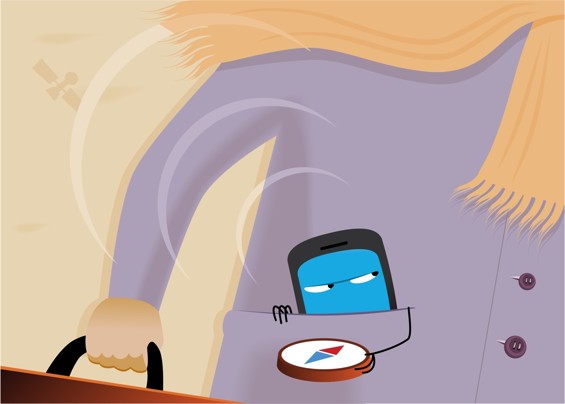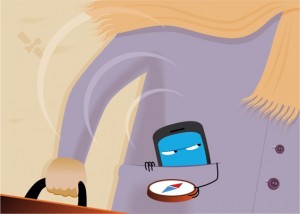“Exhaustion is Not a Status Symbol”
I’m a big fan of University of Houston professor Brené Brown. I first saw her on Ted Talks. Brown does research on vulnerability, and how it leads to a more fulfilling personal and professional life. In her column “On Leadership” at the Washington Post, Lillian Cunningham recently interviewed Brené Brown, who shares her thoughts on how today’s workplace too often hinders that pursuit. I share it here, because Brown’s research is powerful and compelling—yet it’s simply a restatement of the ancient Judaic wisdom of Sabbath.
One of the experiences you write about in your book is “the burden of not getting enough done.” I take it this resonates with a lot of people who, despite answering emails at 3 a.m., perpetually feel that they are somehow always behind.
I have really seen that more in the past two years than any other time in my work. And I think it’s a combination of technology and the economic realities, where so many people are doing more than one job. It’s the whole adage of doing more with less. To be really honest with you, I don’t think it’s doable. The expectations of what we can get done, and how well we can do it, are beyond human scale.
And because there’s always this readily available technology and you can get your emails all night long, there’s no stopping and celebrating or acknowledging the accomplishment of anything. Instead of feeling pride or recognition, what everyone is instead made to feel is, “Thank God, I can get to the next thing on my list.”
So as an individual working in such an environment, what can you do? And what if you’re a leader shaping that culture?
We have to encourage people to set boundaries around their work and respect them when they hold them. And I think as leaders we have to model that. One thing that I tell people all the time is, I’m not going to answer a call from you after nine o’clock at night or before nine o’clock in the morning unless it’s an emergency.
To me, a leader is someone who holds her- or himself accountable for finding potential in people and processes. And so what I think is really important is sustainability. If it’s crunch time and from Tuesday morning through Wednesday night all bets are off, then there should be some real boundary holding Thursday, Friday, Saturday and Sunday. When people just don’t make themselves available, I think it’s healthy, and I think it’s smart.
I imagine a lot of people would love to do that but would probably say they’re scared to be the one person on a team who sets those boundaries.
You know what I would argue? Less than half the people I’ve interviewed would say they work around the clock out of fear, and more than half would say they do it out of habit. We use work to numb out. We can’t turn off our machines because we’re afraid we’re going to miss something.
I don’t want to dismiss the fact that people are fearful, but, you know, one of the biggest shame triggers at work for us is relevance. Our fear is that we’ll be perceived as not relevant or not necessary. So I think sometimes that’s why we jump on the weekend emails. You have to have buy-in from a lot of people to create a culture of immediacy and 24-hour working. I think as many of us are perpetuating that as are victims of it.
You have a quote in your book, “One of the most universal numbing strategies is what I call ‘crazy-busy.’” Elaborate on this concept.
‘Crazy-busy’ is a great armor, it’s a great way for numbing. What a lot of us do is that we stay so busy, and so out in front of our life, that the truth of how we’re feeling and what we really need can’t catch up with us.
I see it a lot when I interview people and talk about vacation. They talk about how they are wound up and checking emails and sitting on the beach with their laptops. And their fear is: If I really stopped and let myself relax, I would crater. Because the truth is I’m exhausted, I’m disconnected from my partner, I don’t feel super connected to my kids right now.
It’s like those moving walkways at the airport — you’ve got to really pay attention when you get off them, because it’s disorienting. And when you’re standing still, you become very acutely aware of how you feel and what’s going on in your surroundings. A lot of our lives are getting away from us while we’re on that walkway.
Let’s go back to the example of the executive on the beach—could you walk through what that person should do to let life, as you say, catch up?
One of the things that I found was the importance of rest and play, and the willingness to let go of exhaustion as a status symbol and productivity as self-worth. A lot of people told me that when they put their work away and when they try to be still and be with family, sometimes they feel like they’re coming out of their skins. They’re thinking of everything they’re not doing, and they’re not used to that pace.
So when we make the transition from crazy-busy to rest, we have to find out what comforts us, what really refuels us, and do that. We deserve to not just put work away and be in service of someone else. What’s really meaningful for us? What do we want to be doing? That happens not just in work culture, I see it even with teenagers who now have four and five hours of homework and go to bed at one in the morning. We don’t know who we are without productivity as a metric of our worth. We don’t know what we enjoy, and we lose track of how tired we are.


Great article, and I’m guilty as charged way too often…
We’re all guilty–including, I’m sure, Brene Brown. But if we’re aware of how we’re really living our lives, we have a chance at redemption. The only real sadness is not even being aware.
Thank you for sharing this–excellent.
This is a very important reflection – and I, for one, am guilty as charged. Ginny